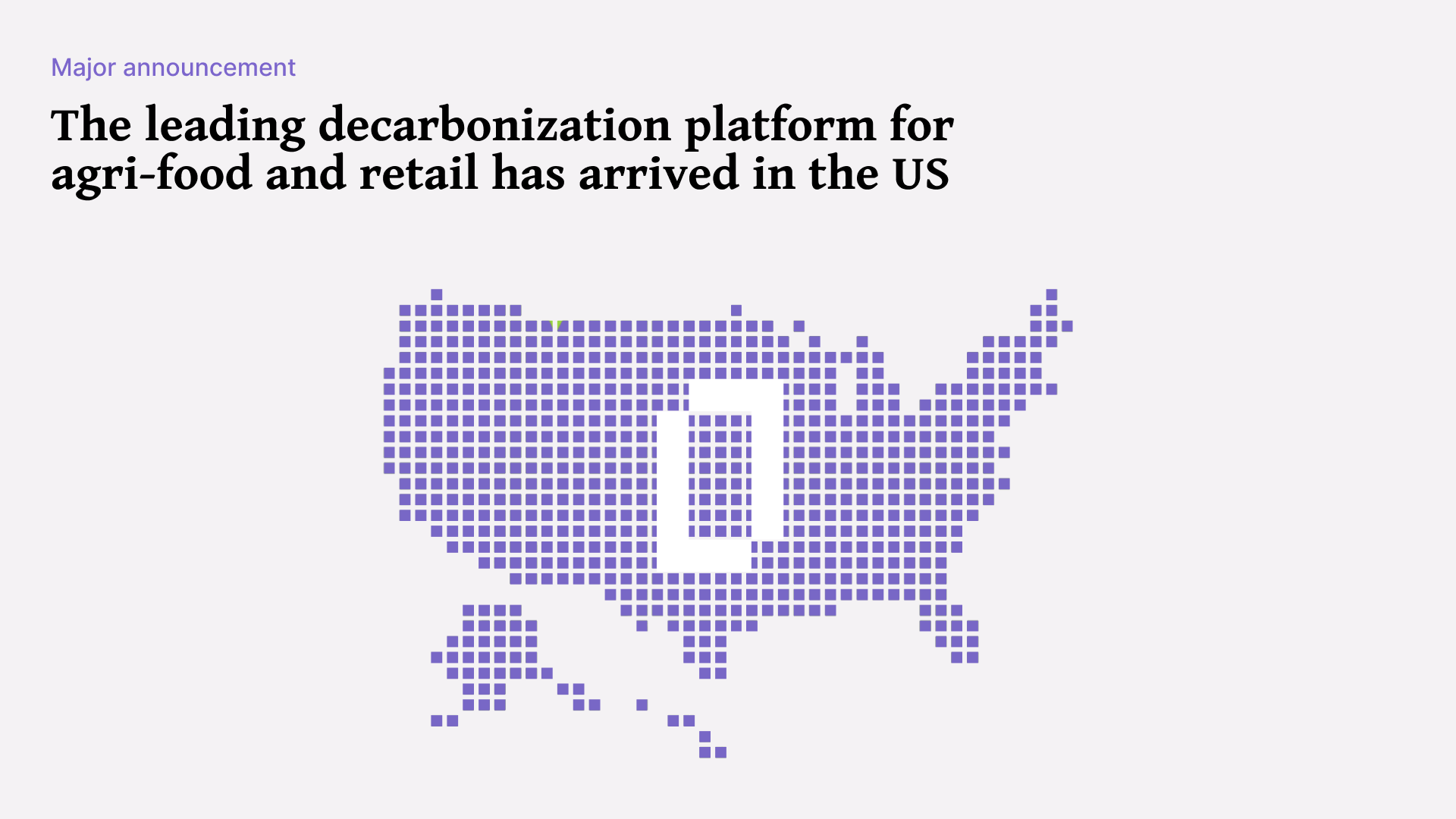Enterprises play a crucial role in driving decarbonization efforts to keep the planet habitable for all, and need as much support as possible to effectively decarbonize. Enterprises have already been using the Terrascope platform to accelerate the first step of their decarbonization journey - to accurately measure their greenhouse gas emissions. To empower enterprises in their development of material and effective decarbonization initiatives that target their uniquely identified hotspots, Terrascope has launched an array of features to our ‘Reduce’ module encompassing tools built to enable the effective management of emission reductions, empowering enterprises to make informed decisions and set a clear path towards achieving net-zero emissions.
What-If Simulations
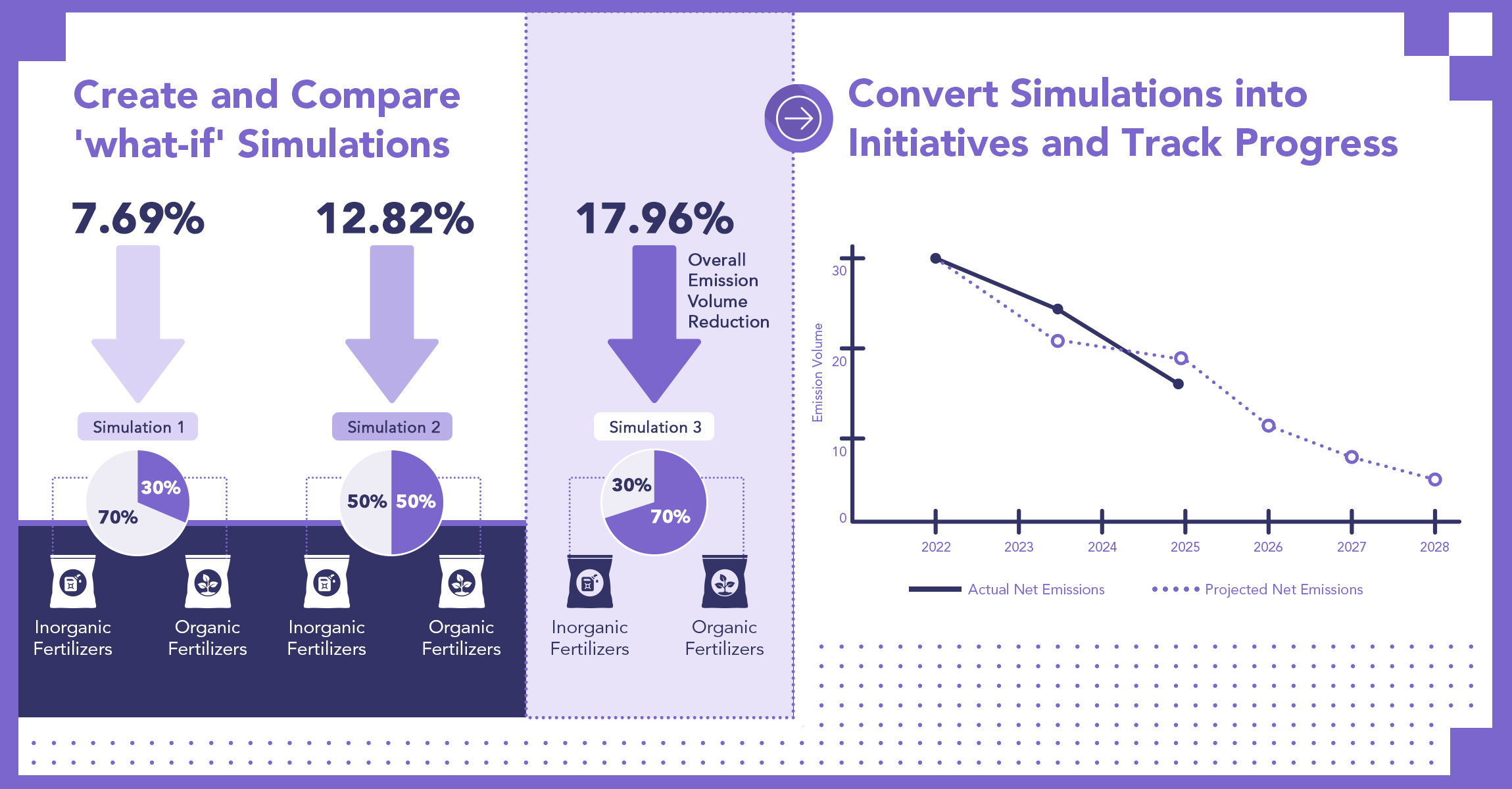
One of the key features of Terrascope's Reduce Module is its ‘What-If’ simulations capability. Enterprises can now create multiple simulations by adjusting various factors across their value chain and compare and contrast the potential impact of each on emissions. This capability empowers businesses to explore different procurement options and production methods across their value chain, test different strategies, and quantify the impact of each on their emissions by scope, business-unit or geography. By being able to model and visualize the consequences of different decisions, enterprises can make informed choices that optimize emission reductions while minimizing disruptions to their operations.
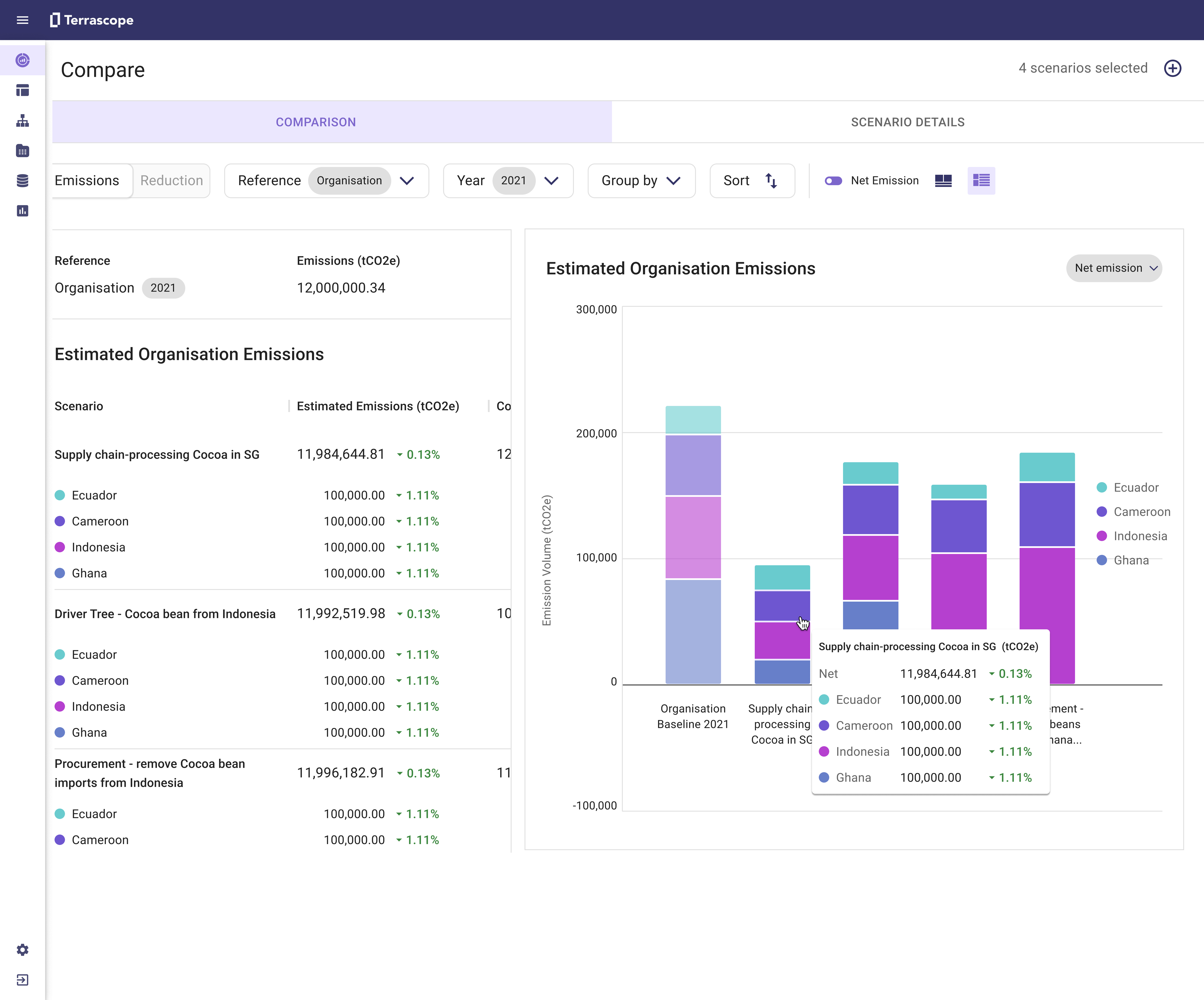
Compare
Terrascope's Reduce module also offers the ability to compare and contrast simulations, enabling enterprises to develop accurate forecasts for emission mitigation. By analyzing the outcomes of various simulations, businesses can identify the most effective strategies for reducing emissions. This comparative analysis serves as a compass, guiding enterprises towards actionable pathways that align with their sustainability goals. Armed with this knowledge, decision-makers can develop comprehensive action plans and allocate resources strategically to achieve substantial emission reductions.
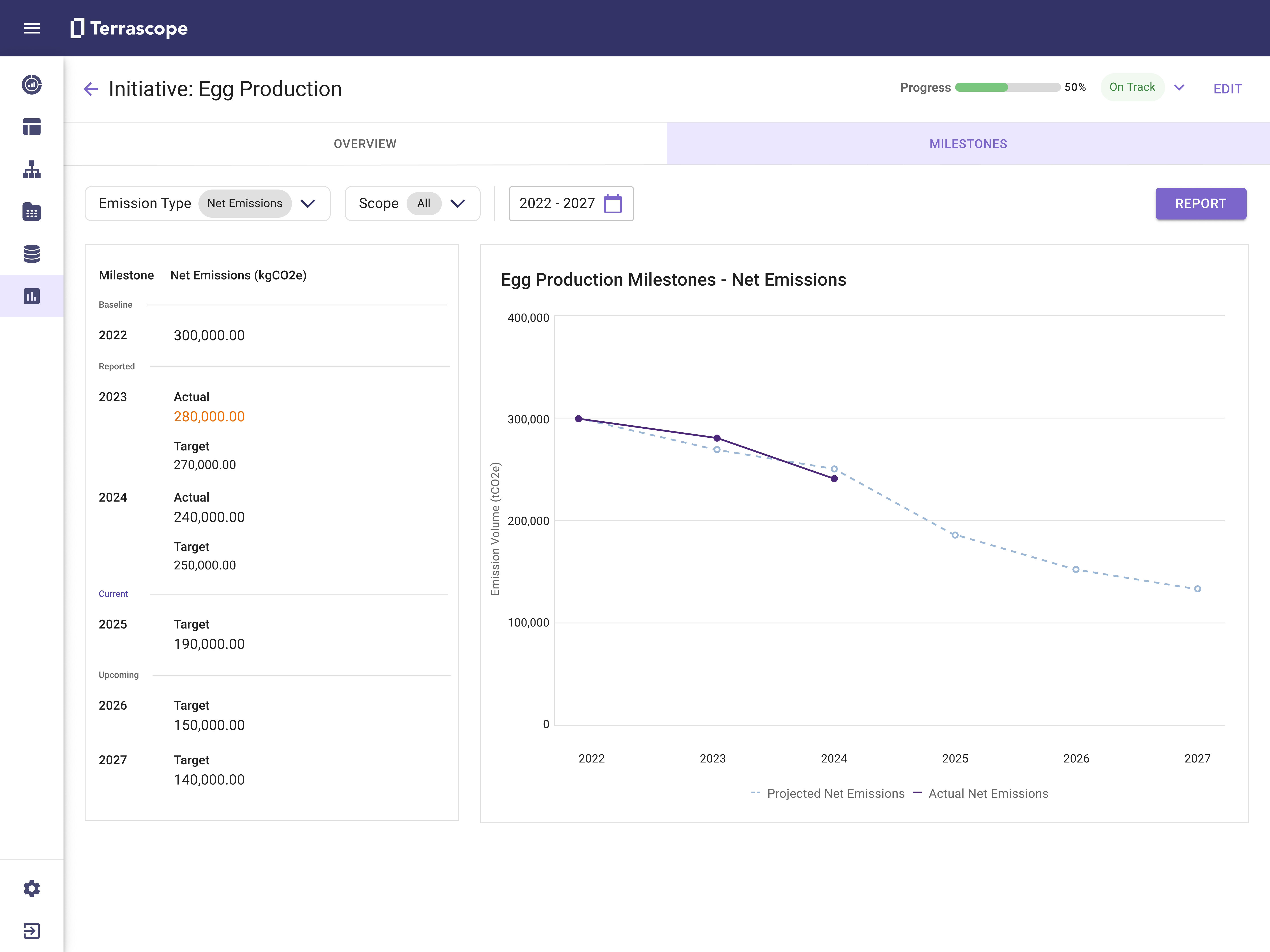
Moving from Simulations to Initiatives
Tracking Progress over Time Once enterprises have selected a simulation that aligns with their emission reduction objectives, Terrascope's Reduce module allows them to transform a simulation into an initiative. This transformative step enables the tracking of progress over time and the establishment of a structured action plan. By converting simulations into initiatives, businesses can monitor and measure the effectiveness of their efforts, ensuring accountability and fostering a culture of continuous improvement. This feature empowers enterprises to stay on course and adapt their strategies as needed, facilitating ongoing emission reduction progress.
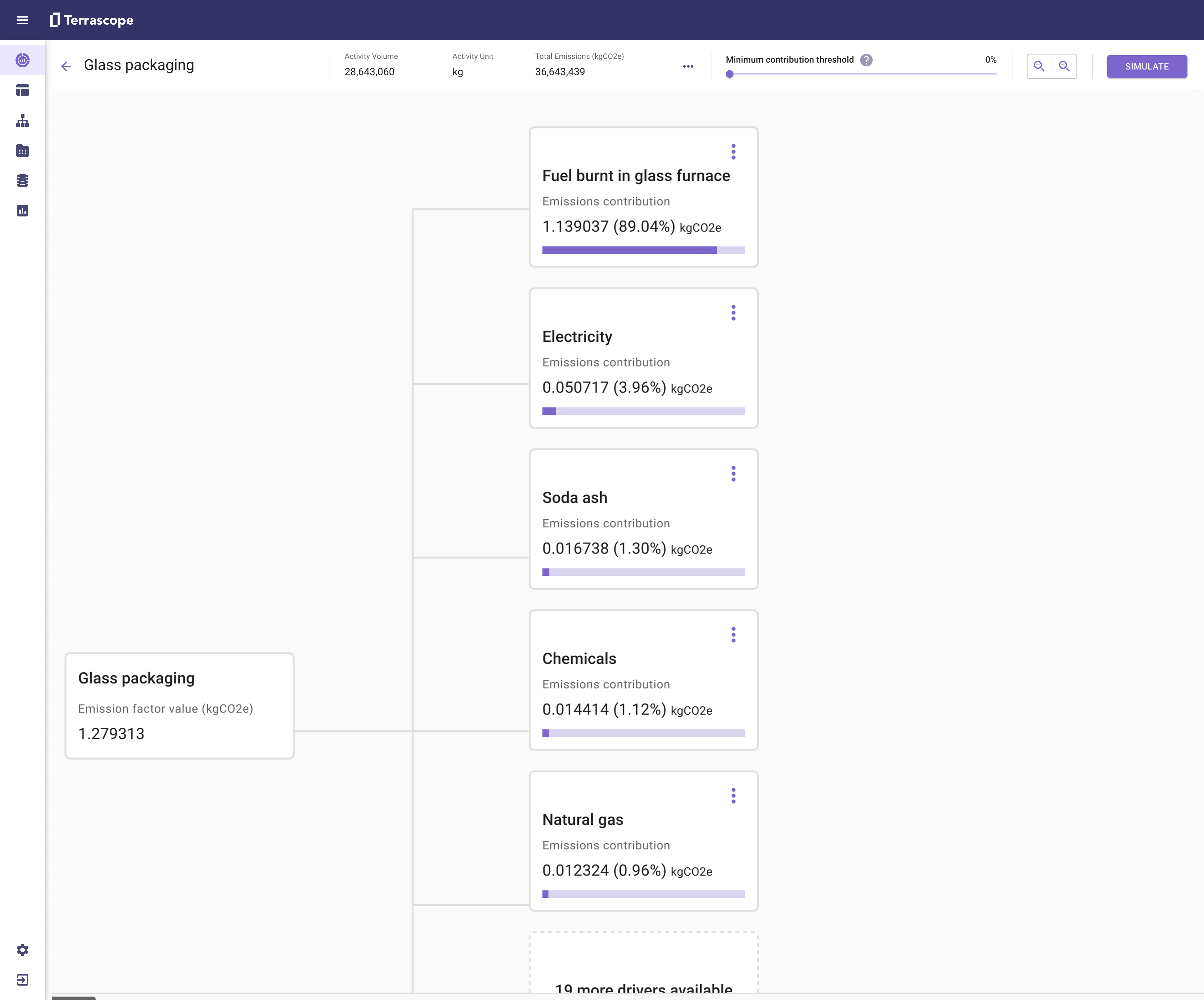
Impact on Informed Decision-Making
Accuracy :
Companies often understand what their biggest sources of emissions are, be it a supplier, raw material or a shipping route, and have a good grip on the levers they can decarbonize the said hotspot with. However, they often find it difficult to quantify the extent of decarbonization
One of the key reasons businesses choose Terrascope's Reduce module for emission reduction management is its ability to quantify the expected impact of specific plans. Enterprises can identify their biggest emission hotspots, such as shipping routes or sets of suppliers, and evaluate the potential effects of their actions on these critical areas.
Speed :
Evaluating the impact of decarbonization levers on a value chain is a long-drawn, complicated process. Sustainability teams often spend a large amount of time assessing this impact.
Terrascope helps companies understand the precise impact of their decarbonization levers through simulations on the platform, empowering companies to allocate resources, especially teams, efficiently and prioritize initiatives that yield the greatest emission reductions. Terrascope's Reduce module empowers enterprises to make data-driven choices, leading to more quick, effective and impactful emission reduction plans.
Collaboration :
The Reduce module fosters collaboration by driving bottoms-up and a top-down ownership of carbon goals. As simulations get converted into initiatives, they can be monitored on the platform, giving teams working on the ground access to emissions data dashboards that matter to them, unlocking collaboration within your organisation and external partners to support data gathering, reduction initiatives, and progress tracking towards your decarbonization goals.
Terrascope's Reduce module marks a significant milestone in the field of SaaS decarbonization, providing large enterprises with a powerful suite of tools to manage their emission reduction efforts effectively. Through What-If simulations, comparative analysis, initiative tracking, and impact quantification, Terrascope enables businesses to make informed decisions and take decisive actions towards achieving net-zero emissions.

Jason Gregory
Chief Product Officer
Jason is a seasoned product & technology professional, with over 18 years of experience creating and leading innovative commercial and technology solutions in Online Marketplaces, Publishing, Digital Marketing, SaaS, Search and Competitive Intelligence across Australia, Southeast Asia and the UK.



